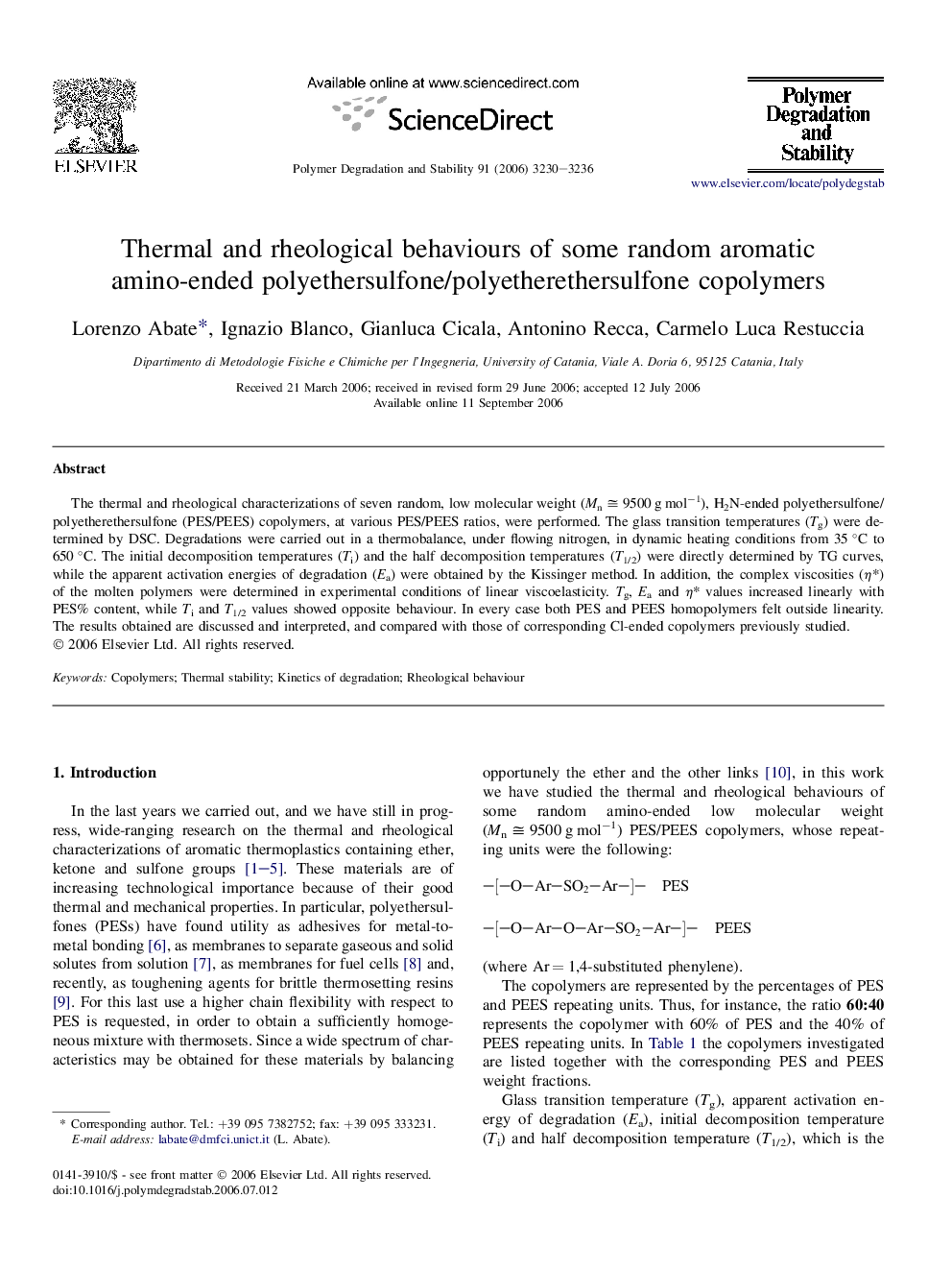| Article ID | Journal | Published Year | Pages | File Type |
|---|---|---|---|---|
| 5204957 | Polymer Degradation and Stability | 2006 | 7 Pages |
Abstract
The thermal and rheological characterizations of seven random, low molecular weight (Mn â
 9500 g molâ1), H2N-ended polyethersulfone/polyetherethersulfone (PES/PEES) copolymers, at various PES/PEES ratios, were performed. The glass transition temperatures (Tg) were determined by DSC. Degradations were carried out in a thermobalance, under flowing nitrogen, in dynamic heating conditions from 35 °C to 650 °C. The initial decomposition temperatures (Ti) and the half decomposition temperatures (T1/2) were directly determined by TG curves, while the apparent activation energies of degradation (Ea) were obtained by the Kissinger method. In addition, the complex viscosities (ηâ) of the molten polymers were determined in experimental conditions of linear viscoelasticity. Tg, Ea and ηâ values increased linearly with PES% content, while Ti and T1/2 values showed opposite behaviour. In every case both PES and PEES homopolymers felt outside linearity. The results obtained are discussed and interpreted, and compared with those of corresponding Cl-ended copolymers previously studied.
Related Topics
Physical Sciences and Engineering
Chemistry
Organic Chemistry
Authors
Lorenzo Abate, Ignazio Blanco, Gianluca Cicala, Antonino Recca, Carmelo Luca Restuccia,
